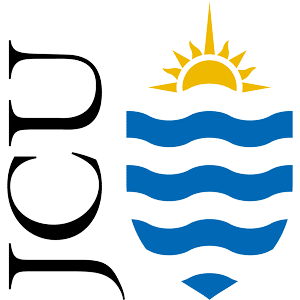Demonstrate you're ready for manager roles in healthcare with an advanced degree.

For health professionals seeking more responsibility, create career opportunities with a Master of Health Administration. Degree options include a Master of Health Services Management, Master of Nursing, and MBA (Health Management).
Health administrators plan and coordinate healthcare operations, working in settings such as hospitals and aged care facilities. You can train in this field with a specialist master's degree. Accelerated 100% online courses enable you to study part-time as a full-time working professional.
Online Courses from Australia
JCU Online - Master of Nursing (Leadership and Management)
As a nurse or midwife, the Master of Nursing from James Cook University could be the ideal program for your next career stage. A major in Leadership and Management targets supervisory and admin roles. Subjects include leading and managing, ethics and health management, business and finance for the health manager, and conflict and dispute resolution. The accelerated 12-subject program is 100% online and has graduate certificate and graduate diploma options.
SCU Online - MBA (Health Services Management)
The Master of Business Administration (Health Services Management) at Southern Cross University develops business skills in healthcare administrators. This 100% online program offers flexible learning for busy professionals. Topics include strategic management, clinical accountability, organisational behaviour, and finance. You'll also complete an industry research project and build a professional portfolio. Affordable tuition and strong support make this degree accessible.
Related: Health Management Courses Online in Australia
Types of Programs
The best healthcare administration masters for you depends on your career goals. Healthcare administration is studied at a postgraduate level by professionals from various backgrounds, including nursing, medicine, therapy, pharmacy, counselling, social work, and psychology.
To develop your management skills broadly, do a health admin or management degree. To stay in a niche, choose a sector-specific program such as nursing leadership. For a business management education, which is suitable for almost any executive role, an MBA is the way to go.
A popular, contemporary version of a Master of Health Administration degree is the Master of Health Services Management.
With this health service management course, you study health admin with an emphasis on the consumer experience. Service quality and patient safety are prominent issues.
For nurses, you can enroll in a nursing masters and major in administration, management or leadership. Master of Nursing programs allow for specialisation, such as the Master of Nursing (Leadership and Management).
Instead of studying nursing practice only, you can do a management stream that prepares you for leadership roles.
An alternative to a health admin masters is the world's most recognised graduate degree, a Master of Business Administration (MBA).
An MBA in Healthcare Management is a general management program. You can major in healthcare by selecting relevant electives. A business degree is not required for entry. MBA degrees bring career advantages no matter where you may be employed in the future.
Any of the three types of master's degree will look good on your CV or resume. Always review the course curriculum to ensure it aligns with your career objectives.
Related: What Degree is Best for Healthcare Management?
What Health Administrators Do

Health administrators plan, direct, coordinate and supervise the delivery of health and related services. They're employed in hospital and community healthcare centres, aged care facilities, health departments, government and community organisations, and in primary care and general practice.
Administrators may be clinical specialists in charge of a niche department or service. They might also be generalists who manage projects, multi-purpose facilities or health systems. Complex tasks may include: integrating health care delivery systems, introducing technological innovations, reorganising work structures, and ensuring regulatory compliance.
A good postgraduate course improves your career prospects by giving you essential management knowledge and skills. The program develops you as a leader, imparting skills in strategic planning, managing service quality and safety, and making policy decisions. You'll come away ready and qualified to work as a manager in healthcare settings.
Related: Healthcare Management vs Healthcare Administration
What You'll Study (Course Structure)
Students are typically required to complete 12 subjects. You'll cover topics such as organisational leadership and management, financial management, clinical accountability, and research for managers.
Graduates gain general, transferable skills and knowledge for any health administrator role.
You can test any given master's program by enrolling in an embedded health management graduate certificate. The four subjects you complete for the graduate certificate will count towards your degree if you continue studying.
Related: Master of Health Management Online in Australia
Why a Health Administration Masters Is Worth It

A master's degree in health administration opens doors to supervisory, team leadership, and management roles. The degree enhances your administrative skills and shows employers your commitment to effective management. You'll be ready to handle challenges and drive improvements in healthcare settings.
In Australia, employment of Health and Welfare Services Managers is projected to expand by 15.4% over the next 5 years to more than 43,100 jobs. This growth highlights the increasing need for skilled leaders in healthcare. With a master's degree, you can aim for roles like nurse unit manager, director of nursing, clinic manager, health practice manager, medical practice manager, health services manager, and health policy advisor.
Investing in a health administration master's boosts your career prospects. It places you at the forefront of a vital and expanding industry. The knowledge and skills you gain will help you contribute to healthcare delivery and policy.
Related: What Is Health Service Management?




